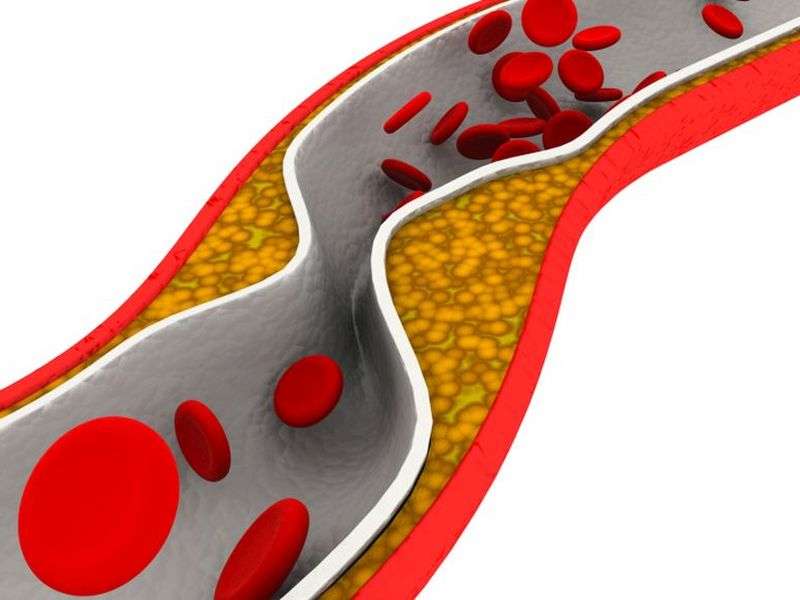(HealthDay)—Oxidized low-density lipoprotein (ox-LDL) as a proxy for oxidative stress is associated with metabolic syndrome (MetS) and its components, according to a study published online Dec. 19 in Diabetes.
Yamilee Hurtado-Roca, M.D., from the Centro Nacional de Investigaciones Cardiovasculares Carlos III in Madrid, and colleagues examined the correlation between oxidative stress and MetS using data from 3,987 subjects without diabetes in the Progression of Early Subclinical Atherosclerosis study.
The researchers found that after adjustment for age, sex, smoking, LDL cholesterol, body mass index, waist circumference, and homeostatic model assessment of insulin resistance (HOMA-IR), the odds ratios for MetS for the second, third, and fourth quartiles of ox-LDL versus the first quartile were 0.84 (95 percent confidence interval, 0.52 to 1.36), 1.47 (95 percent confidence interval, 0.95 to 2.32), and 2.57 (95 percent confidence interval, 1.66 to 4.04) (P < 0.001 for trend). For all MetS components except glucose concentration, results showed the same trend. Overall, 13.9 percent of the association between waist circumference and triglycerides was mediated by ox-LDL, as was 1 to 3 percent of the association between waist circumference and high-density lipoprotein cholesterol, blood pressure, and insulin resistance. The correlation between ox-LDL and MetS components was not mediated by HOMA-IR.
"Ox-LDL may reflect core mechanisms through which MetS components develop and progress in parallel with insulin resistance and could be a clinically relevant predictor of MetS development," the authors write.
More information: Full Text (subscription or payment may be required)
Journal information: Diabetes
Copyright © 2016 HealthDay. All rights reserved.























